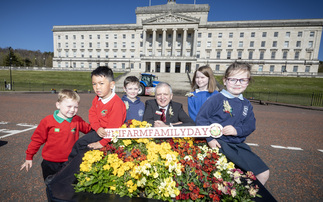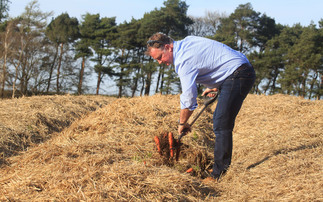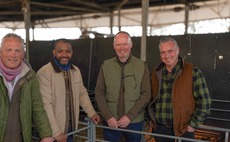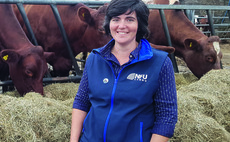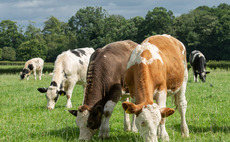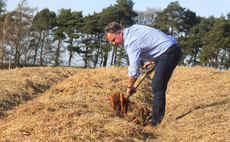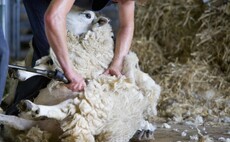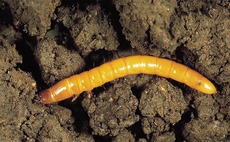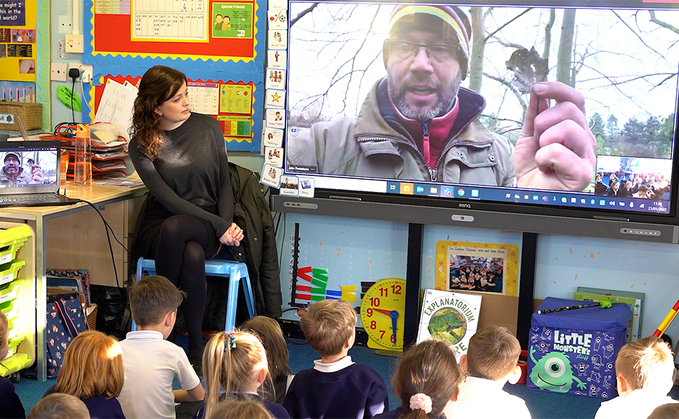
There has been a surge in demand from teachers linking up with farmers to help educate schoolchildren about where food comes from. Danusia Osiowy looks at the impact Farmer Time is having on the consumers of tomorrow.
More farmers are still needed to help educate young school children about where and how their food is produced, due to unprecedented demand by teachers across the UK.
Since Farmer Time began in 2016, the social media initiative has connected 742 teachers (equating to just under 33,000 children) with farmers, creating a platform for pupils to gain a real-time, year-round understanding of farming and the countryside, all from a secure, live video call within the classroom.
https://www.youtube.com/watch?v=FDToRER3TLg
Development
Linking Environment and Farming (Leaf) Education is now continuing to develop the initiative in collaboration with Tom Martin, the Cambridgeshire farmer who spearheaded the idea. In its impact report, 100 per cent of teachers would recommend Farmer Time and said they had enjoyed the experience.
The initiative has also seen a rapid global expansion, with international partners in Sweden, Finland, the Republic of Ireland and as far afield as Australia and New Zealand.
Last year, campaign organisers urged farmers to get involved after they announced 230 teachers, representing nearly 7,000 children, were waiting to be paired with farmers.
Willingness
The pre-requisites are simple. Any farmer can take part, it does not cost anything, apart from time and willingness to talk to children and a decent digital connection.
Íæż½ã½ã can work with schools as to the frequency of talks, which can be as regularly as once every two weeks or once a month.
For more information about Farmer Time and how to get involved, visit
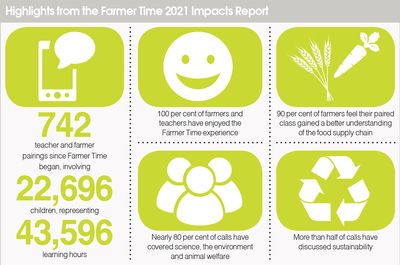
Case study: Washingborough Academy, Lincolnshire
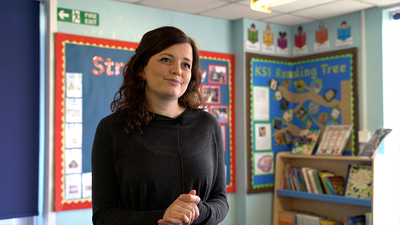
OFSTED highlighted the schoolâs approach to healthy eating in its most recent inspection, rating the academy âOutstandingâ for early years and personal development and welfare.
Within seconds of walking into Washingborough Academy, it is clear food education is a fundamental focus of the many activities the schoolchildren do. From the on-site allotments and polytunnels to an aeroponic system growing strawberries in the Year 6 corridors, food and farming education is prolific.
Punctuating the walls are creative, colourful posters about climate change and the environment, and there is one area in particular which stands out.
The Farmer Time area is adorned with stories written by the children about what they have enjoyed learning about during their regular phone calls with the different farmers who have helped educate them about where their food farm â from the salmon farm in Fife to the drilling and harvesting of crops on an arable farm in Reading.
Todayâs live session is with âFarmer Jakeâ, as Key Stage One learners (children aged between five and seven) gather cross-legged on the floor in front of the computer ready to be taught their final lesson before lunch arrives.
At 11.15am, their teacher Catherine Wilkinson starts video calling and, within seconds, the children are connected to Farmer Jake Freestone as he streams live into the classroom from his arable farm in Gloucestershire. All the children wave excitedly towards the screen as he reciprocates the gesture explaining it is a very cold day at Overbury Farm.
Habitats
Today the children are learning about habitats and Jake wastes no time giving the children an update on the lambs before getting into his current farming tasks, which have been the planting of trees and 250 metres of new hedgerows.
He takes them on a virtual tour using his phone to show the farmâs woodland habitat and talks through its history, uses and why it is important for certain types of wildlife and birds. The children then take it in turns to ask their questions and Jake answers them as practically as he can, showing on-farm examples as he walks.
The school has been involved with Farmer Time since it launched and the initiative is part of the schoolâs exemplary commitment to food education. With 300 pupils aged three to 11, the school has a holistic approach to learning and looks at the personal and social growth of pupils as well as their academia.
The school has its own vegetable beds for each class, an orchard, beehives, a herb garden and a polytunnel. A wood-fired pizza oven encourages them to create their own pizza toppings from produce grown in the school grounds and dedicated food days run throughout the year where teachers plan a range of lessons around the topic of the day.
In reception, children try ingredients their parents say they would not try at home, such as blue cheese, salmon and beetroot and by the time they leave, all pupils are taught 10 staple dishes to cook, including a full roast dinner. A natural choice for Farmer Time, the school was contacted by Leaf, which put them in touch with Jake and, in Catherineâs words, the school has ânever looked backâ.
She says: âIn week one, Jake showed us around the farm and the children loved it but were very much spectators of what was going on. They were keen to ask questions but stayed with safe questions, such as asking about the crops he grew and animals he kept.
âNow these are much more varied and specific to what Jake talks about. The children have gained so much and it is such a different, real-time, real-life experience.
âThey can see how it fits into our economy and everyday lives and means their food is meaningful and has context. You cannot put a price on that.â All the children are involved in Farmer Time and will change farmers as they progress through school to enable them to learn about different sectors and locations in the UK.
Values
Catherine says: âWe are a values school and we believe very strongly in a holistic approach to learning and looking at the child as a whole â what values they are growing up with, their health and well-being â to help them grow up happier. Farmer Time is one of my favourite parts of the week and Jake is absolutely brilliant.
We speak to him once a fortnight and it is flexible based on what works for the school, but farmers join us once a month. âAcademia is important, but actually children should leave with the understanding of how to be healthy and happy. The children have loved it and have flown with it and it has become a natural part of our school life."
About Washingborough Academy
- Awarded a gold mark Food for Life accreditation
- Employs its own chef, who only uses produce from the area and vegetables grown on-site
- Wormery
- Children have a choice of three locally sourced meals each day and a salad bar
- Polytunnels
- Members of the community help look after different areas
- Beehives produce honey for the school
- Rescue chickens
- Sensory garden packed with wildflowers to create habitats
- Aeroponic growing system
Discussions
THROUGHOUT the 30-minute session, Jake talks to the children about many topics including: beehives, pollination, cover crops, water courses, Usain Bolt, the summertime, happy places, owls, birds, swimming, what leaves are made from and giant fungi.
About #ThisIsAgriculture
FARMERS Guardian has joined forces with key industry stakeholders from across the farming sector to promote careers in agriculture, collaborating with industry bodies and industry partners to see how and where we can work together to shape the political agenda, drive educational reform and provide learning resources.
Articles will feature in Íæż½ã½ã to help agricultural businesses and farms understand recruitment and staff retention challenges and practical ideas they can adopt to mark the evolving changes which are happening in the careers, skills and training arena.










